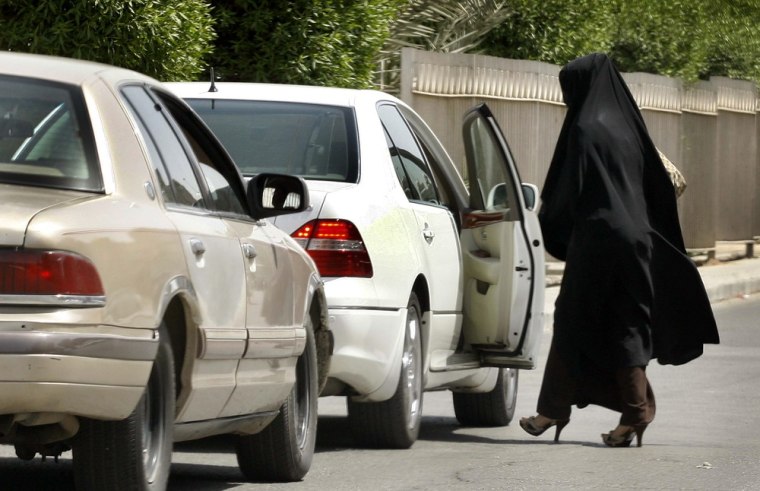A top Saudi cleric challenged a ban on women driving on Tuesday, saying women should be allowed more social participation in the puritanical Islamic state.
Saudi Arabia is a monarchy ruled by Al Saud family in alliance with clerics from the strict Wahhabi school of Islam. Women must be covered from head to toe and are not allowed to drive.
"Clerics have studied the issue and no one has come up with a (Koran) verse that would forbid female driving...," said Ahmad al-Ghamdi, head of the Mecca region's Commission for the Promotion of Virtue and Prevention of Vice.
"I do not consider it to be forbidden," he told journalists on the sidelines of a women's empowerment event in Jeddah.
Women are subject to a male "guardianship" system which requires they show permission from their guardian -- father, brother or husband -- in order to travel or, sometimes, work.
Religious police patrol the streets regularly to ensure gender segregation and that women are dressed modestly.
The rulers of the top oil exporter have wrestled with the issue of moderating the country's strict adherence to an austere version of Sunni Islam. King Abdullah, a reformist, has replaced hardline clerics and officials with more liberal ones.
Ghamdi has been on the front-line of the conflict between liberals and conservatives. He published a paper last year questioning the legality of gender segregation only to be fired from his post. The decision was later reversed.
In his latest remarks, he said however that fear of repercussions from hardliners was getting in the way of change.
"There is a lot of trepidation in the society," he said.
"Even those who have a conviction about the importance of women's role in society are afraid of the harm and accusations that they may face and that is why a lot of people avoid opening that door."
